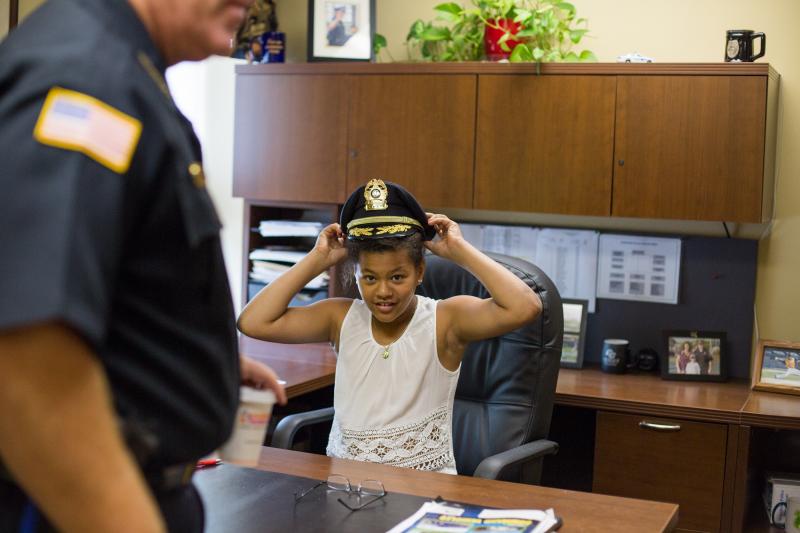CARE students visit police station to talk bullying
Two days before the unveiling of their anti-bullying website, a group of students in the CARE summer program got a chance to talk to a Wareham police officer about bullying.
After touring the police station, middle schoolers in the Community, Academic, Recreation and Enrichment program talked with Officer Dean Decas about bullying. Decas emphasized that bullying is not simply making fun of someone, even if it’s particularly mean.
“When the person that you are making fun of gets scared, it’s not funny to them anymore, or when they start worrying about their safety … that’s when it starts changing from just having fun,” Decas said. “Kids may not do it on purpose, they may think it’s kind of funny, but on the receiving end it’s very hurtful and can be very scary at times.”
Even though he said children should tell an adult if they are being bullied, Decas acknowledged it may be difficult for kids to speak about what is happening to them.
“The bully might get worse … [but] you should always tell a friend … or go to an adult,” Decas said. “There’s [School Resource Officer Karl Baptiste]. He’s really approachable, really friendly and available, and he will listen to you whenever.”
Though bullying is disallowed in schools, it is not against the law, Decas said. However, certain actions that can emerge from bullying are against the law, such as stalking and identity fraud. Decas said both stalking and identity fraud are serious crimes, and can carry a hefty fine, or even jail time.
“If you get charged with [stalking], you can spend two years in [prison], or be fined $1,000,” Decas said. “Bullying can get into a bigger law, and you can end up in jail.”
There are several steps in place, however, before a bullying case will get to the police, Decas said. This will only happen if all other methods, including school intervention have failed.
Teacher Jessica Andrews and school psychologist Sarah Haskell said they thought the talk was a good one for the kids to hear.
“I think it’s important for them to get some perspective,” Haskell said. “It needs to be a serious situation for it to come to the police. … It was good for them to see that they put other things in place, first.”
Haskell also said it was also good for the kids to see that police officers are approachable.
“It was also good for them to come [to the police station], and see that this isn’t a scary place,” Haskell said. “It is positive, and we want them here.”
















